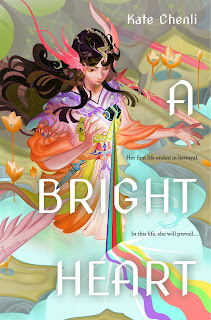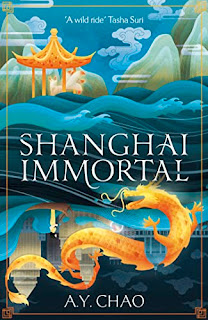 |
| The Otherwhere Post by Emily J. Taylor |
The Otherwhere Post takes place in a city that used to be a shared point between three worlds, which all occupy the same space in their universes. Travelling between them used to happen through doors upheld with magic. But then one of the worlds was taken over by a fast-spreading poisonous vine, killing the place, and the doors had to be destroyed to stop it from killing the other two worlds too.
Seven years later, there’s still no travelling between the two remaining worlds except for couriers who can create individual doors for themselves to deliver letters, some of which have waited since the doors were destroyed. One such letter finds Maeve, several years after it was sent.
Maeve is the daughter of a man who was accused of destroying the world, and a survivor of it. Her father’s name is a curse and she’s learned early on to hide her connection to him. She changes her name and living place constantly, never settling anywhere or confiding in anyone. But then the letter tells her that her father was innocent. She needs to learn the truth, but the problem is, she doesn’t know who sent the letter.
Her only option is to join the school of scriptomancers to learn the ancient art of travelling between the worlds. She cheats her way in and starts to investigate. It proves to be difficult in many ways, but the biggest obstacle is that in order to create a door to another world, she needs to reveal her real name.
But someone in the school already knows it. She’s getting threatening notes, some of which are spelled to physically harm her. She prevails and even makes friends who seem eager to help her, even if she doesn’t tell them the truth about why she’s investigating. But whoever wants the truth hidden isn’t above killing.
This was a good book, but it fell a bit flat for me. The world was interesting, but underused, as it mostly took place in one world and inside the school. The scriptomancy was intriguing, but the narrative never made proper use of it, even though it was pivotal to it, and Maeve’s knowledge of inks and languages was all but ignored. Side characters were nice; Tristan made a good YA hero with his tragic past and willingness to help Maeve, though the inevitable romance didn’t convince me. I liked the slow burn though, and that the pair didn’t hook up the first chance they got.
However, the mystery and how Maeve
investigated it was downright infuriating in its randomness. Most clues were
handed to her and then she made a mess of them. But the biggest disappointment
was Maeve herself. She was a character whose first instinct was to flee at every
obstacle. While it was understandable at the beginning, she never grew out of it,
or grew as a person. It made it difficult to root for her, knowing she would
always take the easy way out, cheat, lie and run no matter who it hurt, to which
she never gave the slightest thought. Most disappointingly, she was sidelined
from her own investigation at the end. It may seem like she solved it, but she
only learns the truth because the villain tells it to her, and then officials
take over, leaving her to read what was happening from letters.
Nevertheless, this was an easy, fairly enjoyable read if one doesn’t overly analyse it. It wasn’t too scary and there were no graphic scenes, so it suits younger readers too. This is a stand-alone, and the ending is conclusive and good.
I received a free copy from Edelweiss in exchange for an honest review.


















